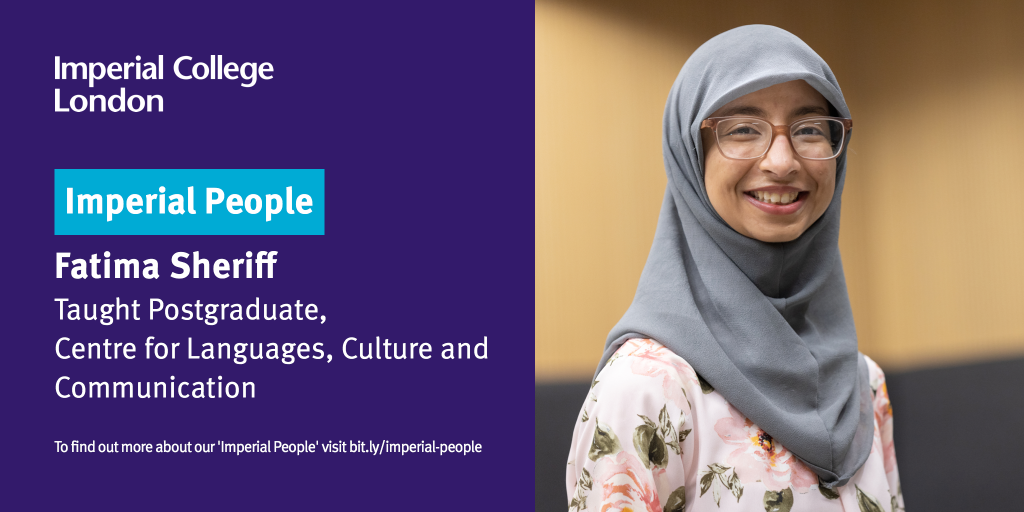“My advice to women in quiz is to not be intimidated by the male-dominated space, just learn what you love, do what you do best, and you’ll fit right in.”
Having studied Biomedical Sciences at the University of Sheffield, I did work experience at the Wellcome Trust and The Royal Society before getting onto the Science Communication Master’s course at Imperial.
My course is what it says on the tin: a humanities course exploring all the ways science can be communicated to the public. We start with a foundation of ethics and media studies, then look into its applications. The highlights for me have been a placement at the British Science Festival and doing academic modules in museums and documentaries. For the latter, I got to write about one of my favourite filmmakers, Agnès Varda, which was a joyous essay experience (not a combination you hear very often).
I chose Imperial because the course is very well-connected. My friends who graduated last year already work in incredibly exciting places like CERN and the BBC, and the cohort has such a diverse range of scientific backgrounds from veterinary medicine to astrophysics to archaeology. Everyone is on the course because they’re friendly and passionate and it is such an enriching and collaborative environment for a postgraduate degree.
Getting on the University Challenge team and winning was a gateway to quizzing and now I’m president of the Quiz Society. We play buzzer quiz tournaments and I’m in my second season of playing in an Only Connect style league on Zoom. My advice to women in quiz is to not be intimidated by the male-dominated space, just learn what you love, do what you do best, and you’ll fit right in. My other love is cinema, which I believe is a powerful tool for empathy. As a freelance film critic, I try to champion the work of female critics and filmmakers.
